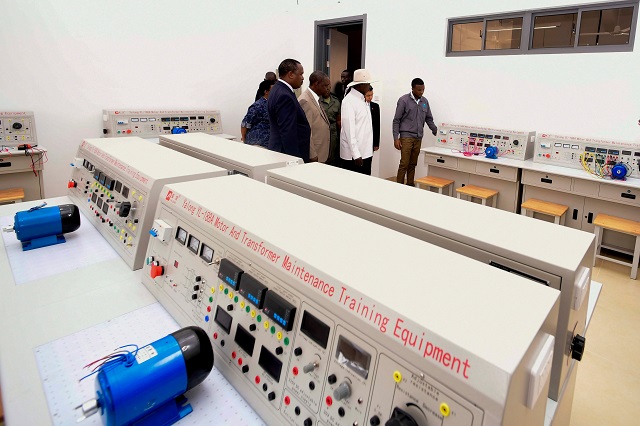
Kampala, Uganda | THE INDEPENDENT | Parliament’s Budget Committee has resolved to approve a supplementary request totaling 10 billion Shillings for Uganda Industrial Research Institute (UIRI) pending an onsite visit at the entity’s Namanve premises on Friday.
This was during an interface with Ministry of Finance officials led by the State Minister of Finance David Bahati. The Thursday meeting followed an earlier interface on April 30, 2020, in which the Budget Committee chaired by Ntenjeru North MP Amos Lugoloobi declined to consider the supplementary request pending detailed information in regard to how the money was going to be spent.
Bahati told the committee that the money was needed to operationalize UIRI’s machining, manufacturing and industrial skills training centre at Namanve. He added that in 2014, UIRI secured a grant of USD 30 million from China to establish the centre. He added that all the planned 17 building structures at the campus have been constructed and machines and equipment installed.
But he said that there are activities which were not covered by the Chinese Grant like the foundry machinery and equipment, payment of utilities, procurement of transport services, ICT equipment, installation of a transformer among others. He said that UIRI has already started the necessary procurement processes for the acquisition of the required goods and services.
According to Bahati, the project is expected to enhance industrial skills by providing platforms for hands-on training and apprenticeship, engage in modern methods of machining and manufacturing of metallic parts, accessories and implements as the country makes progress towards manufacturing of machines.
He added that the project is going to enable the country strengthen its industrialization process especially in the face of COVID-19 where importations are hard to be made.
Rubanda East MP Henry Musasizi said that the Minister’s submission was elaborate compared to a previous submission and that with the availed information, the supplementary request has his support.
Col Fred Mwesigye, the Nyabushozi County MP also noted that UIRI was a strategic and good project for the country which needs support from parliament and encouraged his colleagues to support allocation for the supplementary budget. The allocation was also supported by Rukungiri Municipality MP Roland Mugume who however suggested that the committee first inspects the UIRI premises in Namanve before reaching any conclusion.
Budget Committee Chairperson Amos Lugoloobi ruled that the legislators would pay a visit to UIRI premises on Friday morning before concluding their report. He said that the project was a game-changer for the country’s industrialization project.
Meanwhile, Bahati withdrew a supplementary request of 1.9 billion Shillings previously meant to settle the outstanding energy bills for Fine Spinners and Nyanza Textiles.
He explained that President Yoweri Museveni issued a directive that the vertically integrated textile companies operating in Uganda be supplied electricity at USD 5 cents per KWH, implying that the government would refund any excess paid by the companies beyond the stated amount.
“Arising from the directive, the Ministry was required to budget for the funds, but the funding was not provided in the budget hence the request for supplementary. To guide the implementation of the directive, the ministry signed a memorandum of understanding (MoU) with the qualifying companies which include: Fine Spinners, Southern Range Nyanza, Sigma Knitting Industries Ltd and Textile Development Agency Ltd,” he further explained.
Bahati noted that the MoU requires that refunds are made within 45 days from the date of submission and that is why his ministry presented a supplementary to Parliament in order to cover refunds to the companies that had made submissions.
He, however, says that due to the COVID-19 lockdown, the Ministry of Finance reorganized activities and that from this process, the funding required for the electricity subsidy has been raised from internal re-prioritization of activities and reallocation of the budget. He said that the supplementary is no longer necessary.
******
URN
 The Independent Uganda: You get the Truth we Pay the Price
The Independent Uganda: You get the Truth we Pay the Price



 Anthony Natif notes from Court: Prosecution case enters final stretch
Anthony Natif notes from Court: Prosecution case enters final stretch
